'Go, Karolina!' - How a Polish Woman Conquered Japan
 Imagine...
Imagine...
Imagine a young Polish woman who penetrates the world of shogi, an ancient Japanese game with a rich tradition dating back over two thousand years. The world of professional players of these Japanese chess, exclusive and completely dominated by the Japanese, completely foreign and inaccessible to foreigners. This unassuming, yet incredibly determined woman accomplishes a historic feat by defeating a professional shogi player during her debut, becoming the first foreigner in the long history of this game to achieve this. Then, with equally impressive determination, she successively attains 3rd, 2nd, and 1st kyu, each time as the first non-Japanese in history.
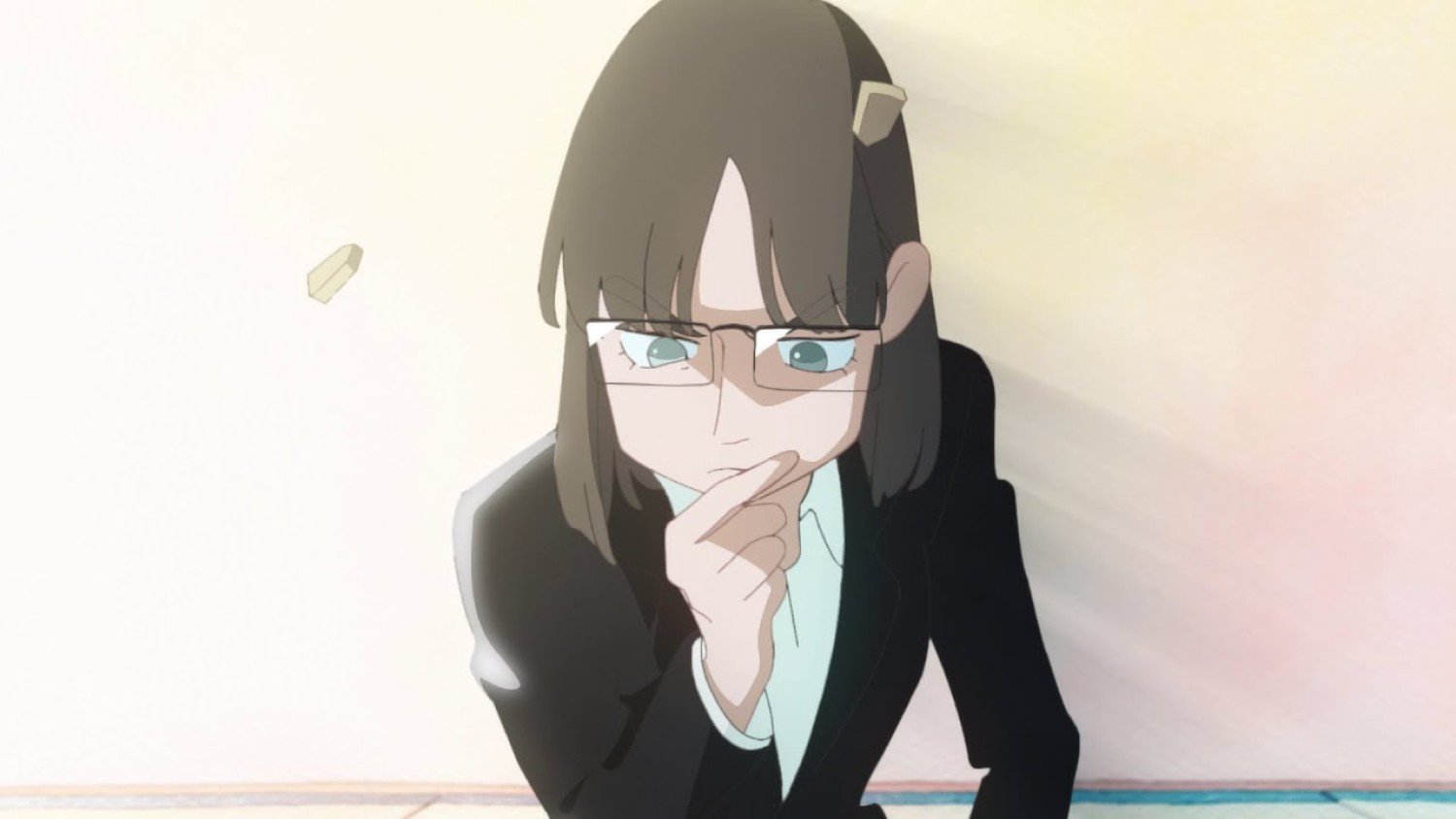
 Shogi - Japanese Chess, What is it?
Shogi - Japanese Chess, What is it?
Shogi, often called Japanese chess, is a strategic board game distinguished by the ability to use captured opponent's pieces. Its history dates back at least to the Nara period in the 8th century, although the exact origin of the game is the subject of debate. Shogi became popular in Japan during the Edo period in the 17th century, becoming an important part of Japanese culture.
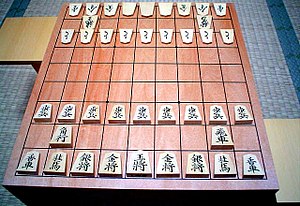
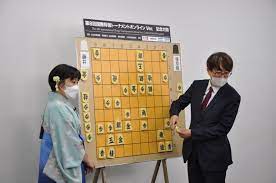
"Shogi really caught my attention in one of the 'Naruto' volumes, but I only fell in love with the game after seeing what it's all about on the Internet. I then decided that it was something for me." – Karolina Styczyńska, interview for Onet.
 Who is Karolina, the Mistress of Japanese Chess Shogi?
Who is Karolina, the Mistress of Japanese Chess Shogi?
Karolina Styczyńska, born and raised in Warsaw, accomplished something few would consider possible, becoming one of the most recognizable figures in the world of shogi – an ancient Japanese game often compared to chess. At the young age of 21, while a computer science student at Cardinal Stefan Wyszyński University, Karolina not only won the title of Polish Champion in shogi but also achieved the status of an amateur 4th dan in Japan. And that was just the beginning. Her story is special not only because of her achievements but also because of the unusual path she chose to reach the top in this discipline.
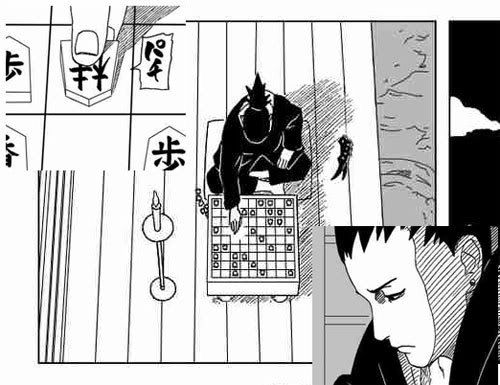
What started as a cultural curiosity quickly turned into a passion when Karolina discovered the possibilities and complexity of shogi. Determined to delve into the game's intricacies, she undertook self-study via the Internet – at that time, educational materials on shogi were much less accessible than they are now.
Her interests were not limited to shogi alone. Karolina, studying computer science, demonstrated analytical thinking and problem-solving ability, which undoubtedly contributed to her successes on the shogi board. Computer science, as a field requiring precision, logical thinking, and often strategic approach, certainly helped her develop game tactics.
Karolina Styczyńska is a living example that passion and perseverance can lead to extraordinary achievements, even in such a niche, complicated, and exclusive field, virtually inaccessible to non-Japanese, as professional shogi play.
Shogi Player Career
Karolina Styczyńska, initially fascinated by shogi through the manga "Naruto", quickly became a figure whose path to shogi mastery inspired many, both in Poland and Japan. Her achievements in a short time paint a picture of an extremely determined and talented shogi player.
Amateur and National League
Karolina, starting her adventure with shogi at the age of 16, not only learned the rules of the game through the internet but also quickly began to achieve success on the amateur scene. One of her most significant accomplishments was winning the title of Polish Champion in shogi. This recognition not only confirmed her skills and passion for the game but also opened the door to further development on the international stage.
 Debut in Japan and Career Continuation
Debut in Japan and Career Continuation
The first turning point in Karolina's career was an invitation to Japan by the professional player Madoka Kitao. It was Madoka Kitao, recognizing Karolina's potential, who decided to support her development, giving her the opportunity to participate in professional tournaments in Japan. Her debut at the Joryu Ouza tournament could not have been more spectacular – Karolina not only proved her skills but also achieved a historic success by defeating a professional shogi player. This was a breakthrough moment that not only surprised the shogi community but also secured Karolina's place in the history of the game as the first woman from outside Japan to achieve such success.
Karolina Styczyńska, referring to her approach to preparations before important matches, emphasizes the importance of a thorough analysis of the opponent's game. By studying the records of her future opponent's games, Karolina could better understand the tactics and style of play, which was crucial for developing her own strategy. "The most important thing was to understand her style of play by watching several records of her games," she says, indicating a methodical and strategic approach to preparation. For shogi players, as in many sports disciplines, analyzing opponents' games is an essential part of training, allowing to anticipate the opponent's moves and adapt one's own game accordingly. In Karolina's case, this meticulous preparation helped her achieve unexpected success, showing how a deep understanding of the opponent's game can influence the outcome at the highest level of competition.
Karolina, thanks to her talent and hard work, achieved the status of an amateur 4th dan in Japan, an extraordinary feat for a player from outside the country where shogi has a centuries-old tradition. The process of gaining the next dans required not only intensive training and delving into game strategies but also confrontation with strong opponents, which allowed her to develop skills and adapt to a higher level of competition.
 Career Development in Japan, Further Tournaments, and Challenges
Career Development in Japan, Further Tournaments, and Challenges
By defeating a professional player, Karolina not only gained recognition in the world of shogi but also opened the way for further tournaments and challenges. Continuing her career in Japan, she had the opportunity to compete with increasingly strong opponents, allowing her continuous development and improvement of her shogi skills. Each subsequent tournament presented her with a new challenge, and her determination and passion for the game were the driving force on the path to further successes.
Karolina Styczyńska's path to shogi mastery is not just a story of sports successes but also of resilience, passion, and continuous pursuit of excellence. Her story is an inspiration for many, not just shogi enthusiasts but all who dream of achieving mastery in their chosen field.
Life Beyond the Board
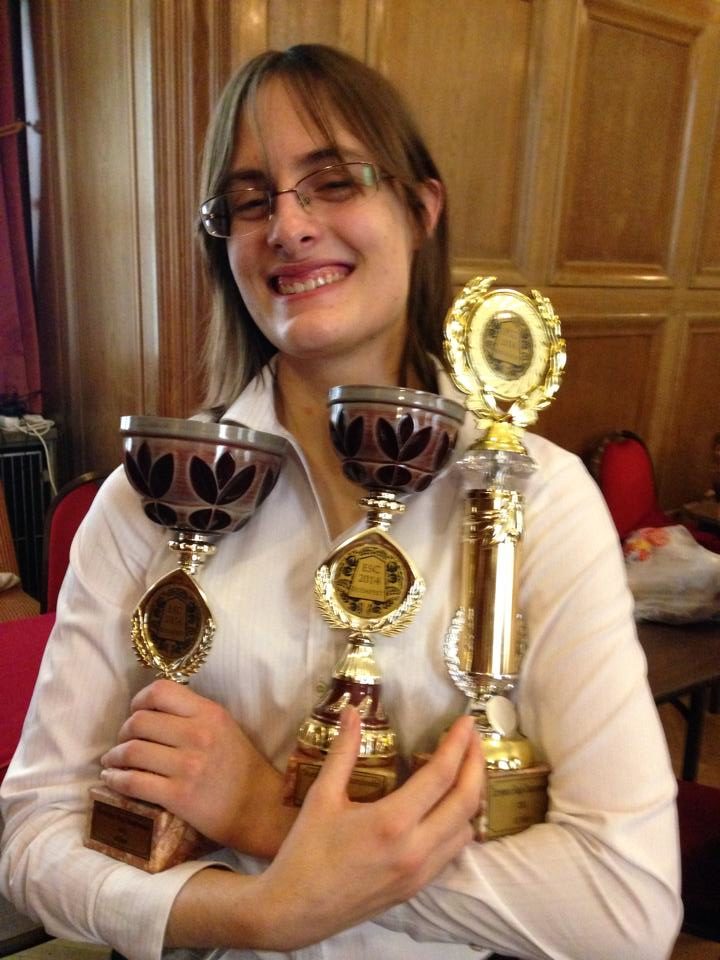
After the birth of her child, Karolina had to adjust her life and training schedule to the needs of her family. This is particularly demanding for athletes who need to devote a lot of time to regular training and preparation for competitions. However, thanks to the support of her family and an organized approach to time management, Karolina is able to continue her shogi career without giving up the important role of motherhood.
Eventually, after some time, Karolina decides to leave the career of a professional shogi player. Instead, she focuses on a new path - as a coach. This decision is the result of a change in life priorities and a desire to focus on supporting and inspiring other players, helping them achieve their goals in the world of shogi. By dedicating herself to coaching, Karolina remains connected to her passion, while also deriving satisfaction from passing on her knowledge and experience to the next generations of players.
 "Forward, Karolina" – Where to Look for Further Information?
"Forward, Karolina" – Where to Look for Further Information?
Anime "Susume, Karolina" (Susume - 進め: "forward") – is a short anime of Polish production, directed by Mariusz Urbański and released in June 2018. The anime tells the story of our Heroine – Karolina, as she prepares, travels to Japan, and wins in a shogi game. It is widely available online, easy to find.
 Blog
Blog
The most valuable source of information, and that firsthand, is Karolina's blog. There, you can find a description of events from Karolina's career, her thoughts, and many other descriptions of her life. The blog is available here: https://shogiismylife.wordpress.com/ At the same time, if someone is also interested in the game of shogi, Karolina also runs a website about this game. The website is here: http://shogi.pl/pl/
Interviews
You can learn a lot, including firsthand information, from the numerous interviews that can easily be found on YouTube.
>> SEE SIMILAR ARTICLES:
Poles as Pioneers in Research on the People of Hokkaido – Ainu
Tomoe Gozen, the Samurai Woman: 'A Warrior Worth a Thousand, Ready to Face a Demon or a God'
"Strong Japanese Women"
see book by the author
of the page
未開 ソビエライ
An enthusiast of Asian culture with a deep appreciation for the diverse philosophies of the world. By education, a psychologist and philologist specializing in Korean studies. At heart, a programmer (primarily for Android) and a passionate technology enthusiast, as well as a practitioner of Zen and mono no aware. In moments of tranquility, adheres to a disciplined lifestyle, firmly believing that perseverance, continuous personal growth, and dedication to one's passions are the wisest paths in life. Author of the book "Strong Women of Japan" (>>see more)
Personal motto:
"The most powerful force in the universe is compound interest." - Albert Einstein (probably)
Mike Soray
(aka Michał Sobieraj)
未開 ソビエライ
An enthusiast of Asian culture with a deep appreciation for the diverse philosophies of the world. By education, a psychologist and philologist specializing in Korean studies. At heart, a programmer (primarily for Android) and a passionate technology enthusiast, as well as a practitioner of Zen and mono no aware. In moments of tranquility, adheres to a disciplined lifestyle, firmly believing that perseverance, continuous personal growth, and dedication to one's passions are the wisest paths in life. Author of the book "Strong Women of Japan" (>>see more)
Personal motto:
"The most powerful force in the universe is compound interest." - Albert Einstein (probably)
Mike Soray
(aka Michał Sobieraj)
Write us...
Ciechanów, Polska
dr.imyon@gmail.com
___________________
inari.smart
Would you like to share your thoughts or feedback about our website or app? Leave us a message, and we’ll get back to you quickly. We value your perspective!
 Imagine...
Imagine...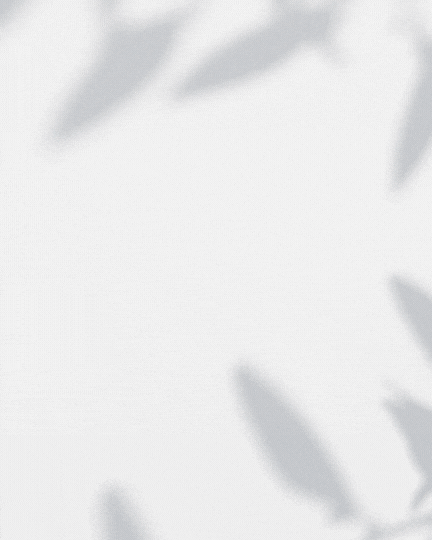
 Who is Karolina, the Mistress of Japanese Chess Shogi?
Who is Karolina, the Mistress of Japanese Chess Shogi?
 Debut in Japan and Career Continuation
Debut in Japan and Career Continuation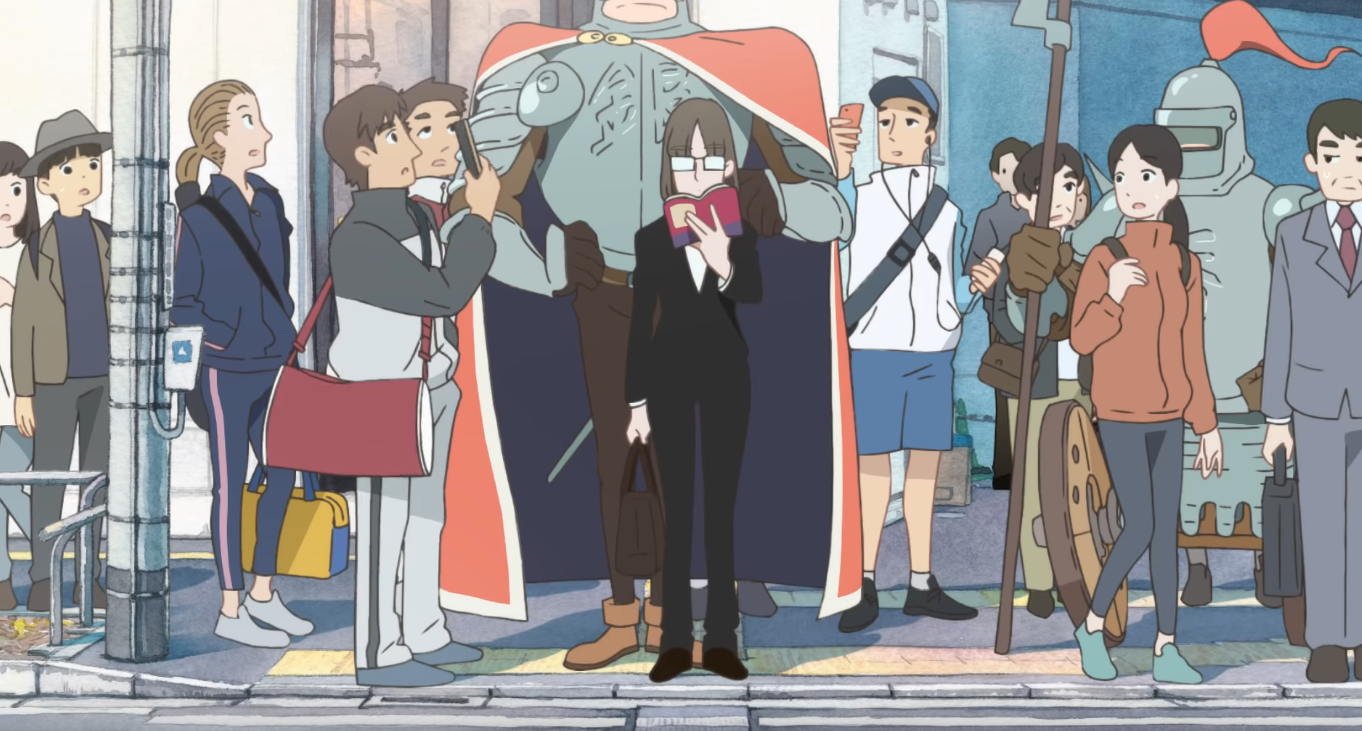


 "Forward, Karolina" – Where to Look for Further Information?
"Forward, Karolina" – Where to Look for Further Information?

